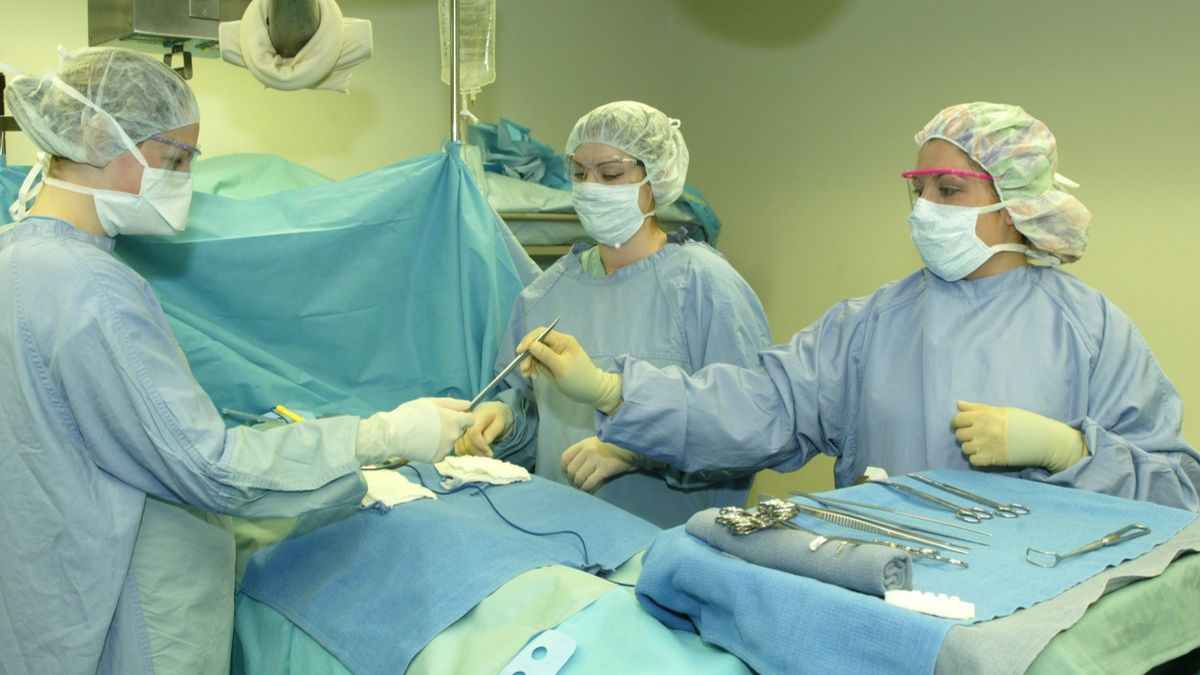For certified surgical technologists, the desire for professional growth often goes hand-in-hand with a taste for adventure. Travel surgical tech jobs offer a unique career path that combines both. This dynamic field allows skilled techs to take on short-term assignments at hospitals and surgical centers across the country, filling critical staffing needs while exploring new places. This guide for 2025 will explore the ins and outs of becoming a traveling CST. We will cover everything from the financial benefits and career advantages to the potential challenges and lifestyle adjustments. If you’re a surgical tech considering a move beyond a permanent position, this overview will provide the clarity needed to make an informed decision.
Table of Contents
What is a Travel Surgical Tech?
A travel surgical technologist, often called a traveling CST (Certified Surgical Technologist), is a skilled allied health professional who works on a temporary, contract basis. These assignments typically last between 8 to 13 weeks, though they can be shorter or longer depending on the facility’s needs. Hospitals and surgical centers hire traveling techs to cover staff shortages caused by leaves of absence, seasonal population increases, or unexpected vacancies.
Unlike a staff technologist who works for a single employer, a traveling tech works with a healthcare staffing agency. This agency acts as the intermediary, connecting the tech with available positions, negotiating contracts, and managing logistics like housing and travel stipends. The core responsibilities in the operating room remain the same: preparing sterile equipment, assisting surgeons during procedures, and maintaining a safe surgical environment. The key difference is the constant change in workplace, team, and location.
The Journey to Becoming a Travel Tech
Transitioning from a staff position to a traveling role requires specific qualifications and a proactive mindset. The path is straightforward but requires preparation to ensure success and access to the best assignments.
Essential Credentials and Experience
First and foremost, you need the right credentials. Most agencies and hospitals require a certification from the National Board of Surgical Technology and Surgical Assisting (NBSTSA), which earns you the CST title. While some states don’t mandate certification, having it makes you a much more competitive candidate. Additionally, you will need a Basic Life Support (BLS) certification from the American Heart Association.
Experience is non-negotiable. Facilities hiring travelers need someone who can adapt quickly and perform with minimal orientation. Most staffing agencies require at least two years of recent, full-time experience in a hospital setting. Specializing in high-demand areas like orthopedics, neurosurgery, cardiovascular, or robotics can open up even more opportunities and lead to higher-paying contracts.
Partnering with a Healthcare Staffing Agency
Your relationship with a staffing agency is the cornerstone of your travel career. A good recruiter is your advocate, career coach, and logistics coordinator all in one. When choosing an agency, look for one that specializes in allied health placements and has a strong reputation. Research different agencies, read reviews from other travelers, and speak with multiple recruiters to find someone you connect with. A transparent recruiter will clearly explain pay packages, benefits, and the details of each assignment. They should be responsive and genuinely interested in your career goals.
The Life of a Traveler: Pros and Cons
The travel surgical tech lifestyle is appealing, but it’s important to weigh the benefits against the potential drawbacks.
The Upside: Why Techs Choose to Travel
- Increased Pay and Financial Benefits: This is often the primary motivator. Travel surgical techs typically earn a significantly higher income than their staff counterparts. Pay packages usually consist of a blended rate that includes a lower taxable hourly wage plus tax-free stipends for housing and meals, maximizing take-home pay.
- Professional Growth and Skill Enhancement: Each assignment exposes you to new surgeons, techniques, equipment, and hospital protocols. This constant learning accelerates skill development and makes your resume more impressive. You can gain experience in specialties you might not have access to at a home facility.
- Adventure and Flexibility: The opportunity to live and work in different cities across the country is a major perk. Between assignments, you can take extended time off to travel or rest without having to ask for vacation time. This flexibility provides an unparalleled work-life balance.
- Avoiding Workplace Politics: As a temporary team member, you can focus on your job and largely steer clear of long-term departmental politics and drama.
Potential Downsides and Risks to Consider
- Instability and Contract Cancellations: The life of a traveler is inherently unstable. Contracts can be canceled with little notice, leaving you scrambling for a new assignment. While rare, it’s a risk you must be financially and mentally prepared for.
- The Challenge of Constant Adaptation: Walking into a new hospital every few months can be stressful. You have to quickly learn new electronic health record systems, locate supplies, and adapt to the unique culture and personalities of each operating room.
- Loneliness and Being Away from Home: Being away from family and friends for extended periods can be difficult. While you’ll meet new people, building deep connections can be challenging when you’re always on the move.
- Navigating Logistics: Finding housing, managing licenses for different states, and handling taxes can be complex. While agencies assist, the ultimate responsibility falls on you.
Conclusion
Travel surgical tech jobs offer an exciting and lucrative career path for experienced and adaptable professionals in 2025. This unique field provides the opportunity to significantly increase your income, rapidly expand your clinical skills, and explore the country on your own terms. The work is challenging, demanding a high level of independence and the ability to acclimate quickly to new environments. While the lifestyle comes with risks like contract instability and the personal challenges of being on the road, the rewards are substantial. For the right individual, it’s more than just a job—it’s an adventure that fosters immense professional and personal growth.
If you are a certified surgical technologist with a couple of years of experience and a desire for something more, exploring travel opportunities could be the perfect next chapter in your career.
Frequently Asked Questions (FAQs)
1. How much do travel surgical techs make on average?
Pay varies widely by location and specialty, but weekly take-home pay can often range from $2,000 to over $3,500 when combining the hourly wage and tax-free stipends.
2. Do travel surgical tech jobs come with benefits?
Yes, most reputable staffing agencies offer benefits packages that can include day-one health insurance, dental and vision coverage, and 401(k) retirement plans.
3. What is a compact license for surgical technologists?
Unlike nursing, there is no national compact license for surgical techs. You must meet the specific requirements for each state, though many states do not require a separate license for CSTs.
4. Can you travel with a pet as a surgical tech?
Absolutely. Many travelers bring their pets, but it requires extra planning to find pet-friendly housing, which can sometimes be more expensive or limited.
5. How are travel surgical tech assignments taxed?
Travelers must maintain a “tax home” to qualify for tax-free stipends. It is highly recommended to consult with a tax professional who specializes in traveling healthcare workers to ensure compliance.












